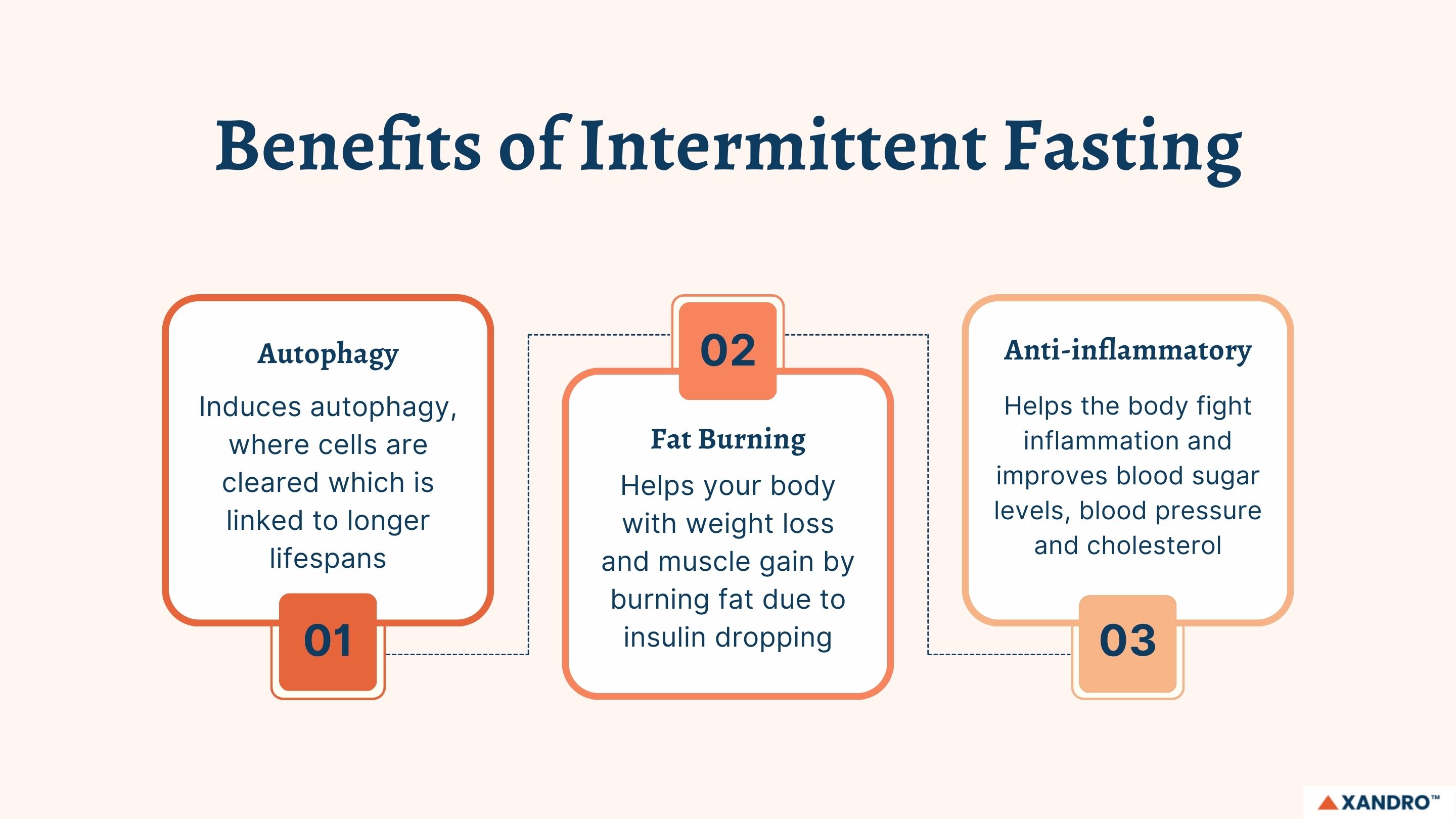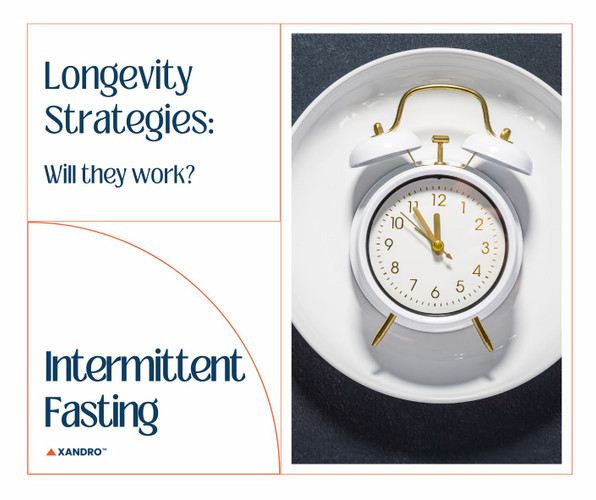Will The Longevity Strategy of Intermittent Fasting Work?
8th Jun 2024
Popular Influencer Longevity Regimes: Intermittent Fasting
Before trying out any longevity tips and longevity strategies, always speak with your medical professional. They can help guide you through your medical history and whether any longevity regimen will be detrimental to your health and interfere with medications you’re taking.
This part focuses on a longevity method that many people, longevity experts, top longevity scientists and the general public alike, talk about, that being intermittent fasting.
Longevity diet criticism is a factor that comes with intermittent fasting, although, unlike the low-protein diet, it doesn’t come with a longevity diet food list. It’s still incredibly important to speak with your doctor or nutritionist to make sure you’re completing this method properly if you wish to start.
Click below to check out our other longevity method analyses:
Intermittent Fasting
What is it?
Intermittent fasting is a weight management tool that is also used as a longevity strategy. It does this by reducing cell aging and disease risk by inducing a process called autophagy, where old, nearly dead cells are cleared before they can cause others to stop working.
It’s not about changing what you eat, but instead, changing when you eat. Due to the long period after eating, your body is forced to exhaust those calories and start burning fat. This is often done through a 16:8 approach, eating all your calories within an 8-hour window, or a 5:2 approach, where you eat normally for 5 days and then restrict yourself to one meal a day for the other two.
The Pros
- Induces autophagy, the process of cell cleaning linked to longer lifespans, improved metabolism, energy production and weight loss.
- Improves physiological function, and performance, and slows aging in mice studies.
- You burn more fat as your blood levels of insulin drop, while your levels of human growth hormone increase, promoting fat burning and muscle gain.
- Helps your body fight inflammation and enhance its resistance to oxidative stress.
- Improves risk factors for heart disease, such as blood sugar levels, blood pressure, inflammation and total and LDL cholesterol.
Further Reading: Longevity and Autophagy Benefits of Ashwagandha

The Cons
- For individuals eating a regular or high-protein diet, intermittent fasting interferes with the spacing of protein consumption throughout the day, resulting in a decrease in lean mass.
- Predominantly found to have benefits on mice, however, anecdotal experiences online have reported benefits on blood sugar, diabetes, mental health, cognition, weight and immune system.
- 16:8 strategy often results in skipping breakfast which may have a negative effect on insulin and blood sugar.
Research
Intermittent fasting, along with periodic fasting, has been found to have a positive effect on aging risk factors, diabetes, autoimmunity, cancer, neurodegeneration and cardiovascular disease, as long as the right fasting intervention is used. Examples of calorie restriction methods have been found to have a benefit on humans, causing a reducing in death, such as, in Japan, Okinawans eat 17 per cent fewer calories than the rest of Japan, which resulted in an increased life expectancy.
Mice studies have found that timed-restricted feeding significantly impacts gene expression, providing a foundation for future studies as well as helping people in their intermittent fasting interventions to treat diseases. While a study hasn’t been conducted large enough to show intermittent fasting can improve lifespan in humans, the benefits of intermittent fasting on health factors that are linked to diseases and reduced health span show that it has benefits on longevity.
Further Reading: Ultimate Guide toWeight Management
Who talks about it?
- Dr. Valter Longo: Dr. Longo is one of the scientists who has conducted research on intermittent fasting and its benefits on longevity.
- Dr. David Sinclair: Dr. Sinclair follows a 16:8 intermittent fasting diet, followed by a monthly five-day calorie restriction of 1100 per day.
End Note
So, when looking into the question of ‘How do I improve my longevity?’ intermittent fasting has many benefits.
It is true that it can be detrimental to your health if you go about it the wrong way, so do your research and make sure you’re still getting all the necessary vitamins and nutrients you need for your daily health, which is what the best longevity doctors talk about.
Along with this longevity regime, did you know there are actually supplements that mimic the effect of intermittent fasting? Check out our research on Spermidine and Trans-Resveratrol to learn more about their benefits without having to change your diet!
Further Reading: Spermidine and Weight Loss
